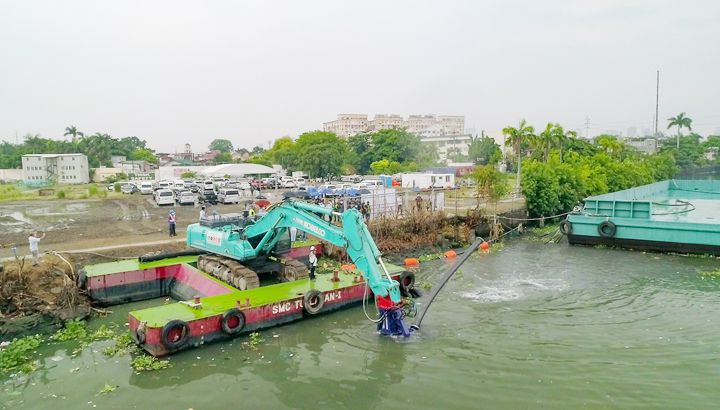The Philippines earns the dubious distinction of having 466 out of 1,656 of the world’s rivers dumping more than 356,371 metric tons of plastic waste annually.
A study has identified the top 50 rivers in the world that are contributing the most plastic pollution into the ocean.
Seven rivers in the Philippines made the top 10 with Pasig River at the top of the list.
The scientific study titled, “More than 1000 rivers account for 80% of global riverine plastic emissions into the ocean” was published in Sciences Advances by the Dutch nonprofit environmental group, The Ocean Cleanup, last April.
The largest contributing country estimated by the model was the Philippines, with 466 out of 1,656 of the world’s rivers dumping more than 356,371 metric tons of plastic waste annually.
The world’s most polluting river when it comes to plastic is the 27-kilometer Pasig River which runs through Metro Manila, accounting for 63,000 tons of plastic waste a year.
Aside from Pasig River, among the top 50 rivers that carry the most amount of trash and plastic into the ocean mentioned in the study are the following:
• Tullahan River
• Meycauayan River
• Pampanga River
• Libmanan River
• Rio Grande de Mindanao River
• Agno River
• Agusan River
• Paranaque River
• Iloilo River
• Imus River
• Zapote River
• Cagayan de Oro River
• Davao River
• Malaking Tubig River
• Tambo, Pasay (Storm drain)
• Jalaur River
• Cagayan River
• Hamulauon River
The study suggested adopting a targeted approach to drastically reduce the river’s plastic emissions.
The Climate Change Commission is pushing for House Bill No. 9147 or the “Single-Use Plastics Products Regulation Act” to address the country’s high rate of plastic waste leakage through a nationwide phaseout of single-use plastics.
Back in May, San Miguel Corp. released a statement promising P1 billion for the cleanup of Pasig River in partnership with the Department of Environment and Natural Resources.
Last year, SMC conducted a similar P1-billion clean-up of the 27-kilometer Tullahan-Tinajeros River system.
Aside from urging the public to shift to a plastic-less lifestyle, environmental groups are calling on the national government to impose more measures to lessen plastic waste and to implement producers’ responsibility schemes
“Our health as human beings is very much dependent on healthy marine environment,” said Ramon San Pascual, executive director of Health Care Without Harm Southeast Asia.
Tags: #waterpollution, #plasticwaste, #riversystems, #PasigRiver
